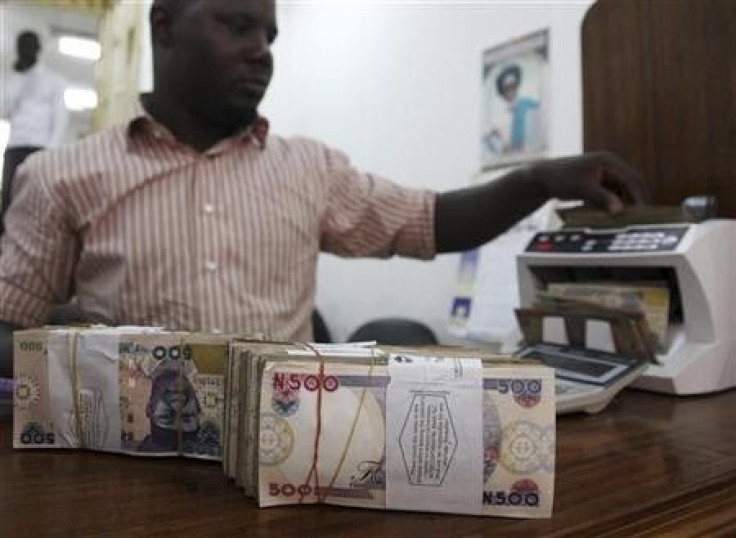Nigerian interbank rates rise on low cash

The Nigerian interbank lending rates climbed on Friday to an average of 14.50 percent from 13.50 percent last week as system liquidity thins out with outflows to bonds and foreign exchange purchases by lenders.
The cost of borrowing among banks eased last week after it initially surged to an average of 17.16 percent following the central bank benchmark interest rate hike.
Interbank rates fell at the close of the week when some formerly rescued lenders sold a portion of their bond holdings to get cash for their operations.
The secured Open Buy Back (OBB) rose to 14 percent from 12 percent last week, 200 basis points above the central bank's 12 percent benchmark rate and 400 basis points above the Standing Deposit Facility (SDF) rate.
The overnight placement climbed to 14.50 percent from 14 percent, while call money rose to 15 percent from 14.50 percent the previous week.
Traders said the market opened on Friday with a cash balance of 172.72 billion naira as bonds and foreign exchange purchases eat deep into market liquidity this week.
Nigeria, sub-Saharan Africa's second biggest economy, sold 55.67 billion naira in 3-,5- and 10-year bonds this week, while the central bank sold around $700 million to lenders at the bi-weekly forex auction and its special intervention.
We expect rates to remain at the same level next week until budget allocations start coming in to provide more liquidity and help push rates down, one dealer said.
Africa's top crude exporter distributes funds from centrally held accounts every month to its three tiers of government -- federal, states and local -- and this always help provide liquidity for banks to finance their operations.
Traders said cash inflows from budgets have been delayed for September because of some unresolved issue between states and federal government on how to treat revenue from oil exports.
Indicative rates for the Nigeria interbank offered rate (NIBOR), rose, reflecting the increased at the short-tend of the market with the seven day funds, closing at 16.04 percent compared to 15.50 percent last week.
Thirty-day funds however, fell to 16.04 percent from 16.50 percent, the 60-day dropped to 16.95 percent from 17.45 percent, while the 90-day eased to 17.37 percent against 17.75 percent.
© Copyright Thomson Reuters 2024. All rights reserved.











